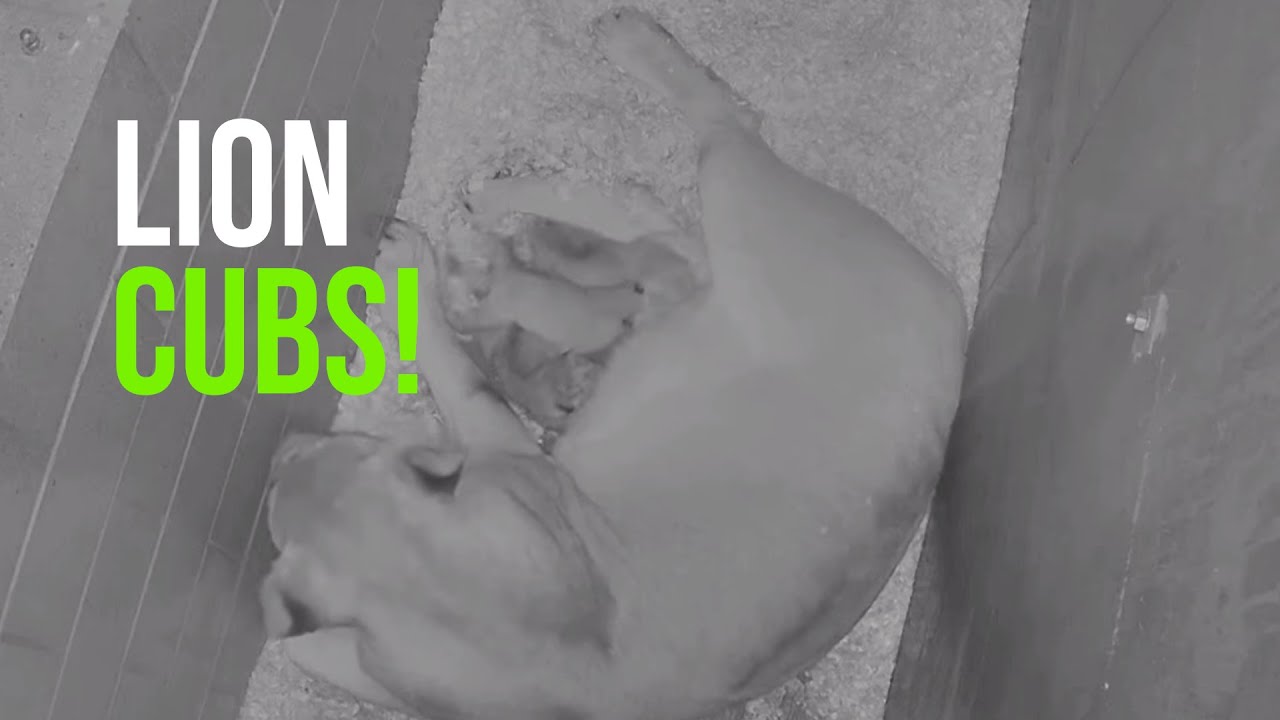- The birth of three African lion cubs at Lincoln Park Zoo marks a significant milestone in the conservation efforts for this species.
- Understanding the breeding, care, and developmental stages of lion cubs while in captivity aids in improving zoo management practices.
- The video documenting the cubs provides key insights into the behavioral patterns and early socialization of these animals.
- Conservation strategies, including breeding programs in zoos, play a crucial role in supporting the preservation of lion populations.
The Lincoln Park Zoo has recently welcomed three African lion cubs, an event that reflects both the triumphs and challenges of wildlife conservation. These births are not only cause for celebration but also provide a critical opportunity to gather knowledge about lion husbandry and conservation. The birth of these cubs is the result of dedicated conservation efforts requiring significant expertise in zoology and zoo management. With African lions classified as vulnerable, every birth in captivity is a step toward ensuring the ongoing survival of the species.
Lions are an integral part of Africa’s natural biodiversity. They play a crucial role in maintaining the balance of ecosystems by regulating prey populations. However, the pressure of habitat loss, prey depletion, and human-wildlife conflict has led to a decline in wild lion numbers. Lincoln Park Zoo’s success in breeding lions is indicative of the critical contribution that zoos make to wildlife conservation. Breeding programs aim to maintain a healthy and genetically diverse lion population, with meticulous attention paid to each breeding couple’s genetic background to avoid inbreeding and ensure genetic health.
Zoo management regarding newborn lion cubs involves precise methodologies from the moment of birth. Key aspects include creating an environment that mimics their natural habitat as closely as possible. The cubs at Lincoln Park Zoo are closely monitored to ensure they adapt well to their surroundings, receiving adequate nourishment and warmth. It is crucial to strike a balance between intervention and allowing natural maternal behaviors to thrive. Through careful observation, zoos can enhance their understanding of the specific needs and behaviors of lions, promoting both the well-being of the cubs and their mother.
The developmental timeline of lion cubs is a topic of great interest within zoological circles. Initially, newborn cubs are blind and rely heavily on their mother for care. The first few weeks are crucial as the cubs develop their senses and start exploring their environment. As the cubs grow, they learn critical survival skills through play, which is crucial for their social and physical development. Observing such developmental milestones within a controlled, yet naturalistic, environment provides invaluable data that can be applied to both in-situ and ex-situ conservation strategies.
The video capturing the early moments of these lion cubs offers not only a visual delight but also serves as an invaluable educational tool. Documenting early interactions between the mother and cubs provides insights into behavioral patterns that might have otherwise gone unnoticed. Such documentation allows zoo staff and researchers to evaluate the effectiveness of current husbandry practices and make informed decisions that could impact future care protocols.
Conservation programs in zoos are essential for safeguarding against the extinction of numerous species, including lions. These programs are part of broader strategies involving habitat preservation and restoration, with international collaboration often being key to their success. The birth and rearing of zoo-born lions like those at Lincoln Park Zoo are not isolated endeavors but are linked to a global network of conservation efforts. Through breeding programs, zoos not only contribute genetically robust individuals to the global population but can also potentially support rewilding projects to bolster wild populations.
The Lincoln Park Zoo, as a part of the Association of Zoos and Aquariums, contributes to the Species Survival Plan for African lions. This initiative coordinates breeding efforts among member institutions to promote genetic diversity and healthy populations both in captivity and the wild. Success depends heavily on collaboration, research, and sharing of scientific knowledge across international boundaries.
In zoos, each lion birth is accompanied by a set of challenges that test the skills and knowledge of zookeepers and veterinarians. Every decision made impacts the health and survival chances of the cubs, calling for a blend of established practices and innovative approaches to problem-solving. The interplay between animal care staff and the cubs’ natural behaviors informs and refines zoo management protocols, enhancing the potential for positive outcomes in the conservation of African lions.
The integration of educational outreach into conservation activities is vital to ensuring public awareness and support for these endeavors. By showcasing the birth and upbringing of the lion cubs through video and guided observations, Lincoln Park Zoo can engage visitors and foster a connection to wildlife that encourages conservation-minded behaviors among the public.
In summary, the birth of three African lion cubs at Lincoln Park Zoo is a significant achievement within the context of global conservation efforts. While the cuddly appearance of the cubs captures public attention, their presence symbolizes a broader commitment to sustaining the world’s biodiversity through meticulous, scientifically-informed zoo management practices. Every successful birth within such breeding programs strengthens the collective fight against the decline of key species, promoting a healthier and more balanced natural world.
*****
Source Description
The African lion pride continues to grow at @lincolnparkzoo Lincoln Park Zoo’s Pepper Family Wildlife Center! The zoo has been on #LionWatch since African lion Zari’s (Zar-ee) pregnancy was announced last month, and, on January 9, the 4.5-year-old African lion gave birth once again, this time to three cubs.
The cubs have yet to be sexed or named. The cubs appear healthy and began nursing within their first hours, a critical milestone. In the next few days, they will be more mobile and begin to open their eyes. Over the next few weeks, the cubs will remain behind the scenes as they grow in size and strength and remain dependent on Zari.


